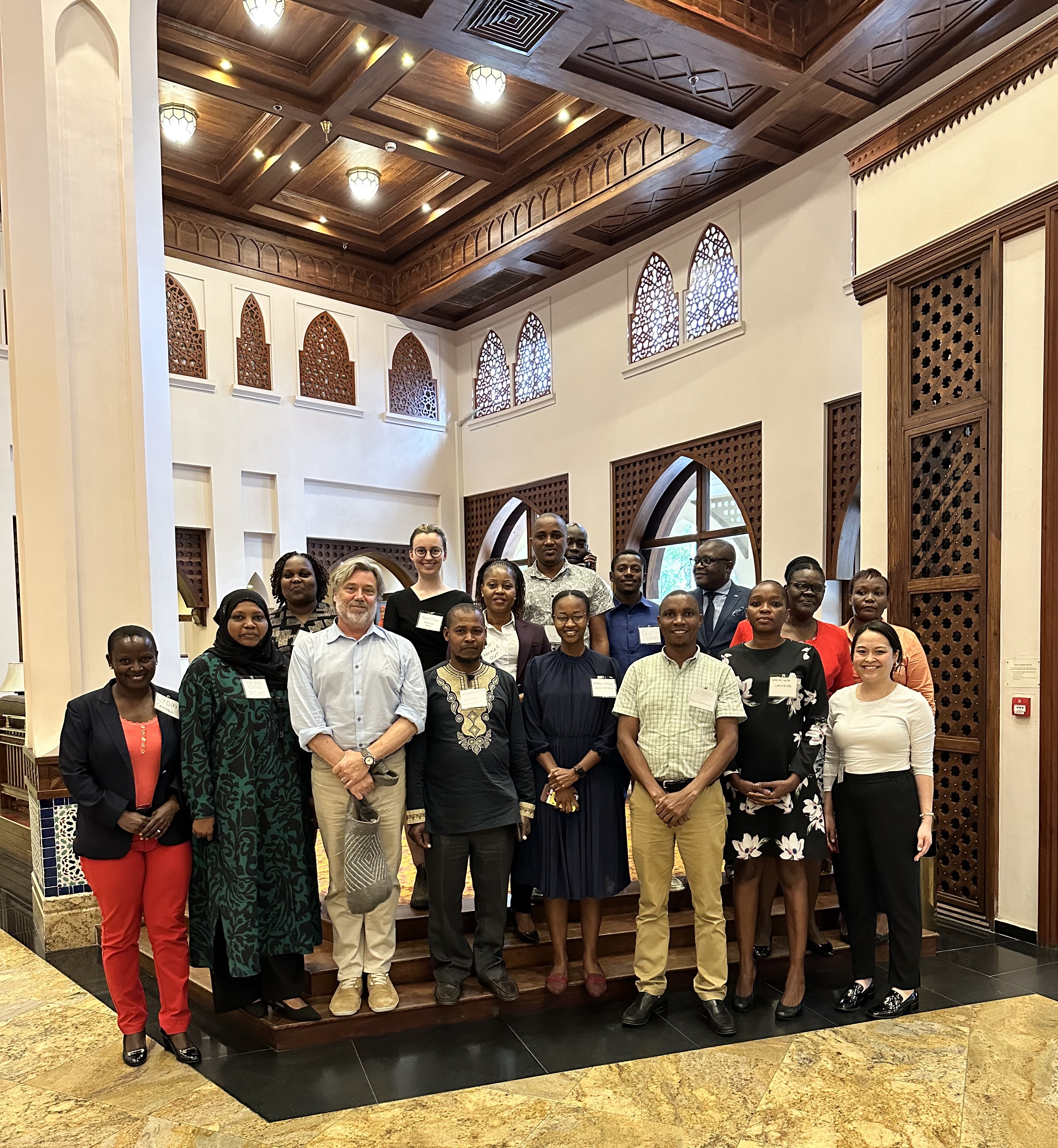
The KIX-ROSIE team at the Brookings Institution Center for Universal Education (CUE) organized a successful workshop in Dar es Salaam, Tanzania on May 29-June 2, 2023, to promote knowledge exchange and collaboration in scaling education innovations between grantees of the Global Partnership for Education (GPE) Knowledge and Innovation Exchange (KIX), a joint endeavor with Canada’s International Development Research Centre (IDRC). The team visited KIX project sites, engaged with local practitioners and government officials, and explored new opportunities for collaboration.
The CUE KIX-ROSIE team had the opportunity during the week to observe a variety of KIX-supported applied research projects. They met with school leaders and participants in CAMFED's Learner Guide program—which supports girls' education and equips them with essential life skills. At Dar es Salaam University College of Education (DUCE), the team learned about the School-based In-service Teacher Training (SITT) model, focusing on professional development, research collaborations, and addressing challenges faced by female math teachers. The team also visited the Open University of Tanzania to discuss the Connected Learning for STEM (CL4STEM) program, which aims to address the shortage of STEM teachers through blended learning and the adaptation of modules to local contexts. Finally, they learned from the Uwezo Tanzania team, part of the People’s Action Learning (PAL) Network, about their focus on improving literacy and numeracy skills through citizen-led assessments and collaborations with government and educational institutions.
Additionally, the CUE KIX-ROSIE team hosted a learning exchange workshop with six Tanzania-based KIX applied research project teams. The workshop provided a platform for fruitful discussions and knowledge exchange, as well as an opportunity to share upcoming findings from ROSIE’s action research and research on government decision-making on scaling education innovations. Several key themes about scaling emerged that are relevant in Tanzania and beyond.
The first theme centered on the use of data to engage government decisionmakers and other innovation champions and partners. Teams reflected on the importance of considering government priorities and assessing their needs and goals as part of implementation and scaling design. They also underscored the importance of learning and co-creating with decisionmakers, rather than trying to hand over data and an innovation without their input. Finally, they suggested packaging data and evidence in targeted and concise ways that time-strapped stakeholders can absorb quickly.
The second scaling theme that emerged from the learning workshop focused on equity and inclusion. Participants felt it was essential to be intentional in data collection and analysis to target equity and inclusion and to consider how equity considerations might change as an innovation scales. Other suggestions for better incorporating equity and inclusion into scaling plans and strategies included to: (1) review existing policy documents on what is currently being done on equity and inclusion, identify priorities and gaps, generate evidence, and advocate for policy enforcement; (2) show evidence on how policies affect not only marginalized populations, but also the larger society, culture, and economy; (3) consider how the system parts interact and find ways to pull levers that may create mindset shifts to advance equity and inclusion; and (4) examine disaggregated data together with school and community leaders.
The CUE KIX-ROSIE team is grateful to all participants, partners, and stakeholders for their active involvement and contributions and looks forward to building on the lessons and insights from the trip to continue to advance knowledge and learning about scaling impact in education, in Tanzania and more broadly.
